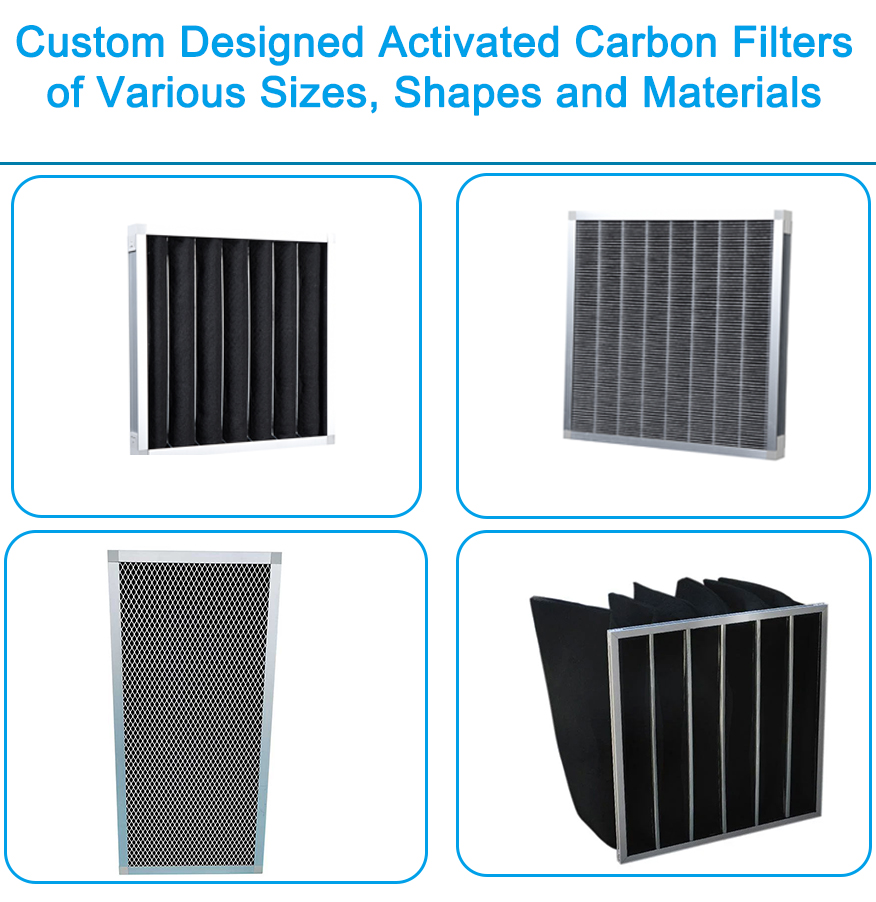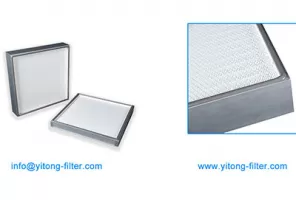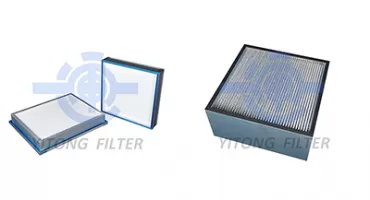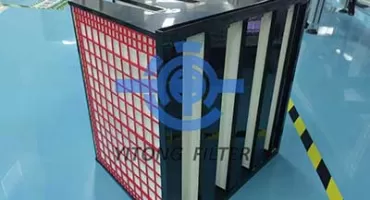 January 08, 2025
January 08, 2025
Air quality is a crucial factor in creating a healthy and comfortable living or working environment. Among the many filtration technologies available, activated carbon air filters stand out for their ability to remove odors, gases, and harmful contaminants. But how do they work, and where are they most effective? This blog will explore the key benefits, applications, and maintenance tips for activated carbon air filters.

An activated carbon air filter is a specialized filter that uses activated carbon (also called activated charcoal) to trap impurities from the air. The carbon has been treated to create a highly porous surface, significantly increasing its capacity to adsorb (trap on the surface) odors, gases, and volatile organic compounds (VOCs).
Activated carbon works through a process called adsorption. When air passes through the filter:
1. Gaseous contaminants like odors, smoke, and chemicals adhere to the carbon’s surface.
2. The filter traps these particles, leaving the air cleaner and fresher.
The key to its effectiveness lies in the carbon's massive surface area—just one gram of activated carbon can have a surface area of over 1,000 square meters!
1. Odor Removal
Activated carbon filters excel at eliminating unpleasant odors, including:
- Cooking smells
- Pet odors
- Tobacco smoke
2. Eliminates Harmful Gases
These filters are highly effective against VOCs emitted by paints, cleaning agents, and adhesives. They also remove harmful gases like formaldehyde and benzene, improving indoor air quality.
3. Improves Allergy Symptoms
Although not primarily designed for allergens, activated carbon filters can enhance overall air quality, indirectly benefiting those with allergies or respiratory issues.
4. Enhances Other Filters
When combined with HEPA filters, activated carbon air filters create a powerful air filtration system that captures both solid particles (like dust) and gaseous pollutants.
1. Home Air Purifiers
Perfect for removing cooking odors, pet smells, and cigarette smoke.
2. HVAC Systems
Installed in heating, ventilation, and air conditioning systems for whole-house odor and gas removal.
3. Commercial Spaces
Widely used in restaurants, offices, and hotels to maintain a clean and odor-free environment.
4. Medical Facilities
Used in hospitals and laboratories to remove chemical fumes and gases.
5. Industrial Settings
Ideal for factories or workshops where chemical odors and harmful gases are present.
When selecting an activated carbon air filter, consider the following:
- Filter Size: Ensure the filter fits your air purifier or HVAC system.
- Carbon Content: More carbon generally means better adsorption capacity.
- Compatibility: Some filters are designed to work alongside HEPA filters for maximum effectiveness.
- Application Needs: For heavy-duty filtration (e.g., industrial settings), choose filters with higher carbon density.
1. Replace Regularly: Over time, the carbon becomes saturated with contaminants and loses effectiveness. Check the manufacturer’s guidelines for replacement frequency, typically every 3–6 months.
2. Keep Pre-Filters Clean: Many systems include a pre-filter to catch larger particles, protecting the carbon filter. Clean or replace these as recommended.
3. Avoid Moisture: Excessive humidity can reduce the carbon’s ability to adsorb gases effectively.
While highly effective for odors and gases, activated carbon air filters have some limitations:
- They do not remove solid particles like dust and pollen.
- Their effectiveness decreases as the carbon becomes saturated.
- They need regular replacement to maintain performance.
To tackle solid pollutants, pair them with HEPA filters for a comprehensive air purification solution.
An activated carbon air filter is a game-changer for improving indoor air quality. Whether you're dealing with persistent odors, harmful gases, or chemical fumes, these filters offer a reliable and effective solution. When used alongside other filtration technologies, they can significantly enhance the air you breathe, ensuring a healthier and more comfortable environment.
Activated carbon air filters are versatile, powerful, and indispensable for anyone serious about maintaining high indoor air quality. From homes to industrial spaces, their ability to adsorb odors and gases makes them a must-have for clean air solutions.
If you're looking to improve your air quality, explore our range of activated carbon air filters or contact us for expert recommendations. Breathe easier, live better!
 Aug. 26, 2024
FAQ about H14 Filter
Aug. 26, 2024
FAQ about H14 Filter
 Aug. 10, 2023
Do you understand HEPA Filter?
Aug. 10, 2023
Do you understand HEPA Filter?
 Oct. 08, 2023
F9 V-Bank Type Air Filter
Oct. 08, 2023
F9 V-Bank Type Air Filter
The F9 V-Bank Air Filters ordered by the australian customers have been shipped.

